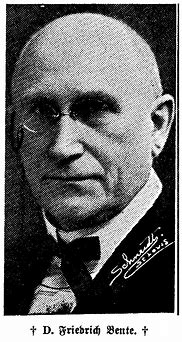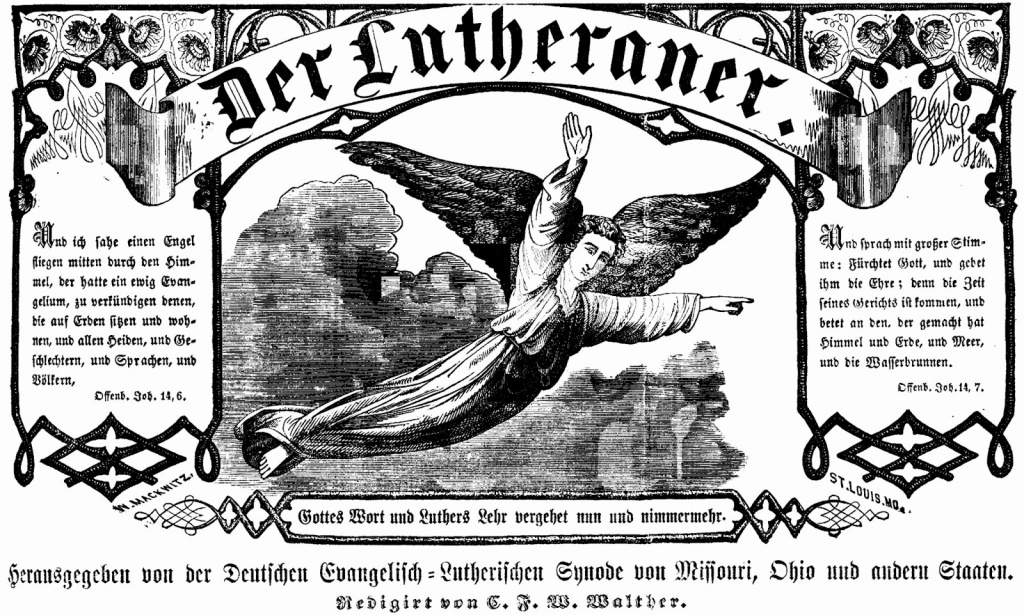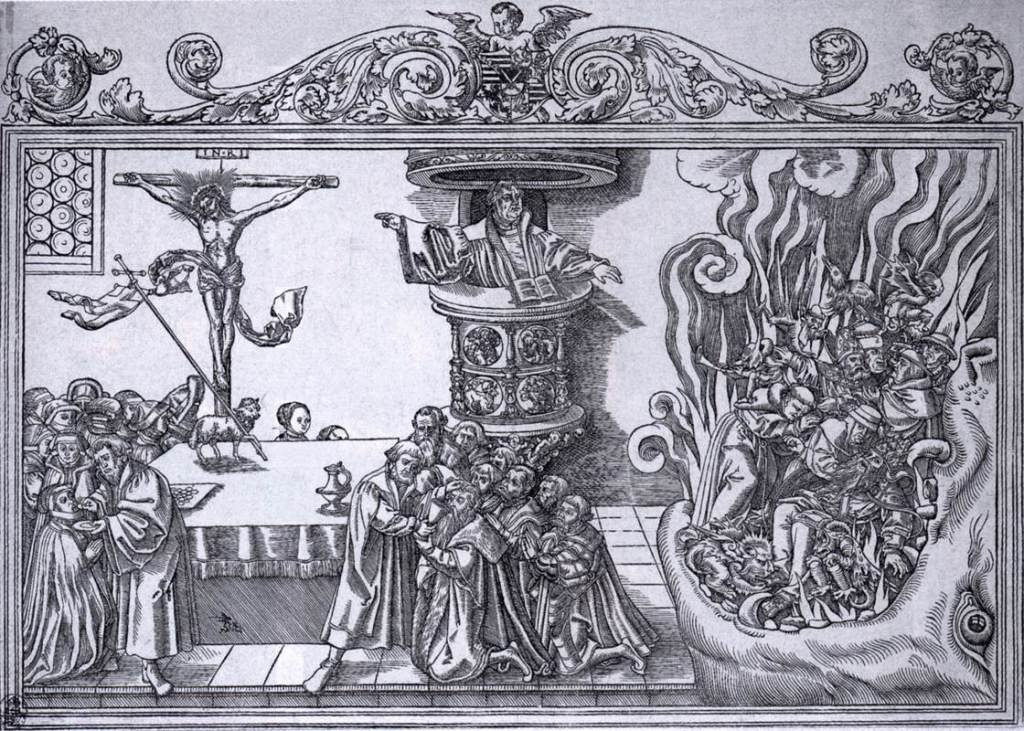As shall be shown in this and future translations, Friedrich Bente was perhaps the greatest voice for the truth in the later years of Lehre und Wehre’s publication, along with Franz Pieper. Now, in order to illustrate just one example of this voice, I present a short article from Lehre und Wehre, 69 (1923), pp. 26–27 (emphasis after the title is mine).
The great bodily need in Germany. In a German newspaper we read: “A compilation brought by Thuringian papers, based on official material, shows clearly how far the misery of children in Germany has progressed. In Zella-Mehlis 1350 of 1500 children were malnourished. Of the schoolchildren in Jena, 3041 did not have their own bed. In the Gotha district 40 percent of all children are malnourished. In Sonderhausen the doctors describe [bezeichnen] 49 percent of all children as sick. In Friedrichsrode 312 of 700 children were malnourished, and in Waltershausen 716 of 1360 children examined were malnourished. In the Ohrdruf district child mortality in 1921 has risen fivefold compared to 1913. In Ruhla 70 percent of all children are malnourished. In Unterweißbach and in Sitzendorf 40 percent of children are tuberculous.” The reports published since then are even more gloomy and hopeless. In a cry for help from Bethel at Bielefeld, where in approximately 100 different houses 13,853 large and small (epileptics, the mentally ill [Gemüts- und Nervenkranke], abandoned infants, etc.) have been fed throughout the last year, P. v. Bodelschwingh says: “Help us to keep Bethel alive in a time of growing need! The inflation almost wants to crush us to death [will uns fast erdrücken]. To provide coals and potatoes for more than 8000 people seems almost impossible. The supplementation of clothes and the maintenance of houses demands exorbitant sums of money. Who will be surprised that in our great household the coffers are empty and [p. 27] the unpaid bills grow into a mountain that lies in our way like an insurmountable obstacle? The need grows from day to day. The people seeking help are becoming more and more [Die Hilfesuchenden werden immer mehr]. The administrator of the orphanage in Weilmünster writes: “The tremendous increase in the cost of all resources, such as coal, clothes [Wäsche], and foodstuffs, forces us to leave the home (which has room for 850 children) empty for the most part.” The cry of distress says: “A sick generation is growing up in Germany. Half of the schoolchildren are malnourished. Tuberculosis, scrofula, and rickets demand countless sacrifices. During the school examinations it was found that over half of the children had no shirt. How inconsolable it may seem [aussehen] there in the families! After all, we have children here [in Germany] who at the ages of eleven and twelve do not even weigh 30 pounds. These are not children who are intellectually or physically degenerated, but only hunger and deprivations of the wartime and the post-war period have brought about this condition. All this misery is not seen by the many commissions of our enemies [the Allies]; they see only the pomp of a fine layer of those who have become rich through the war. The State cannot help. The taxes crush us to death; almost exorbitant are the burdens in favor of the hostile, especially the French occupation. A terrible winter stands before us. The entire German people is demoralized. The terrible years of hunger have made them physically and morally weak. They are sick in body and soul. Help save the children for a better future! With the enormous impoverishment of the German people, our help can only come from abroad.”
In the A. E. L. Kz. of December 22 of last year [1922] we read: “With the increasing rise in food prices, the need of the pastors increases, who are still supposed to support their families on a salary of 60,000 to 80,000 marks [barely $10, that is, $177.41 in 2023] annually. In growing numbers they are forced to seek wage labor in factories for several days of the week.” In another place it says: “The church treasuries are faced with demands that would have been considered impossible just one year ago. From month to month, the sum required for the care of the pastorate and the retirees swells. A number of churches are no longer able to afford them, and they see their ministers most bitterly abandoned.”
According to the articles published by William Bayard Hale, there are now in Germany more than one million children without shoes. Also our brothers in the free church remind us of this great bodily need, which has not diminished since the war, but has continuously increased. Our work of love for the poor German people, deceived by their enemies, oppressed, exploited, and always slandered anew (also in America), must therefore not grow weary. The heartless “Peace [Treaty] of Versailles” (a misnomer for “eternal hatred and war”) and the even more heartless handling and execution of the same is the mature fruit of vindictive, steely, French atheism. For us Christians, this is an opportunity to show the world how Christian faith, Christian love, and Christian warm-heartedness differ from such injustice, cruelty, and selfishness. F. B.
Besides the historical report of this most horrible time of the Weimar Republic, which the reader may have expected, Bente’s comments on the German people and on the Treaty of Versailles are worthy of special mention. Against modern Lutherans, with their hatred of Europeans, Bente wishes with God for “our work of love for the poor German people” to “not grow weary.” Against modern historians, Bente brings out the real history of the Weimar period with reliable documentation. Against both, he calls the Deutschenhass of our moderns what it is, slander against an exploited people. Given the history of the twentieth century, Bente’s judgment on the Treaty of Versailles, that it refers to “eternal hatred and war,” is also worth noting.





